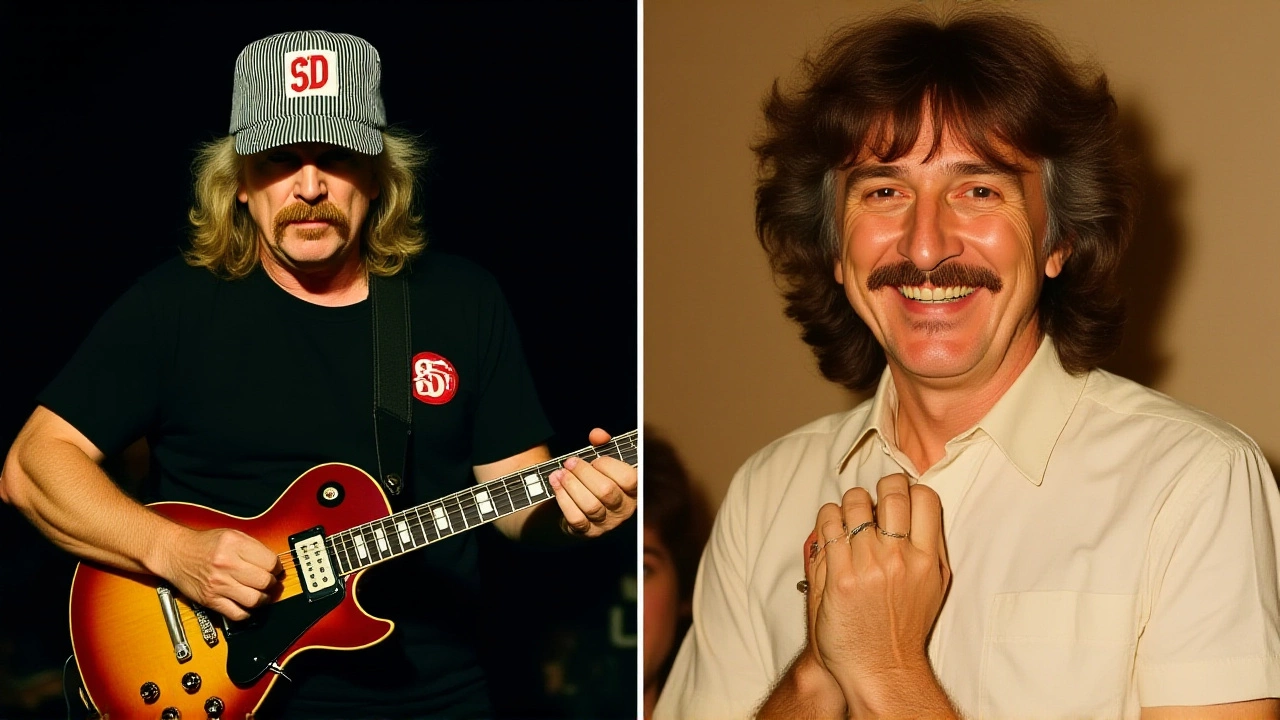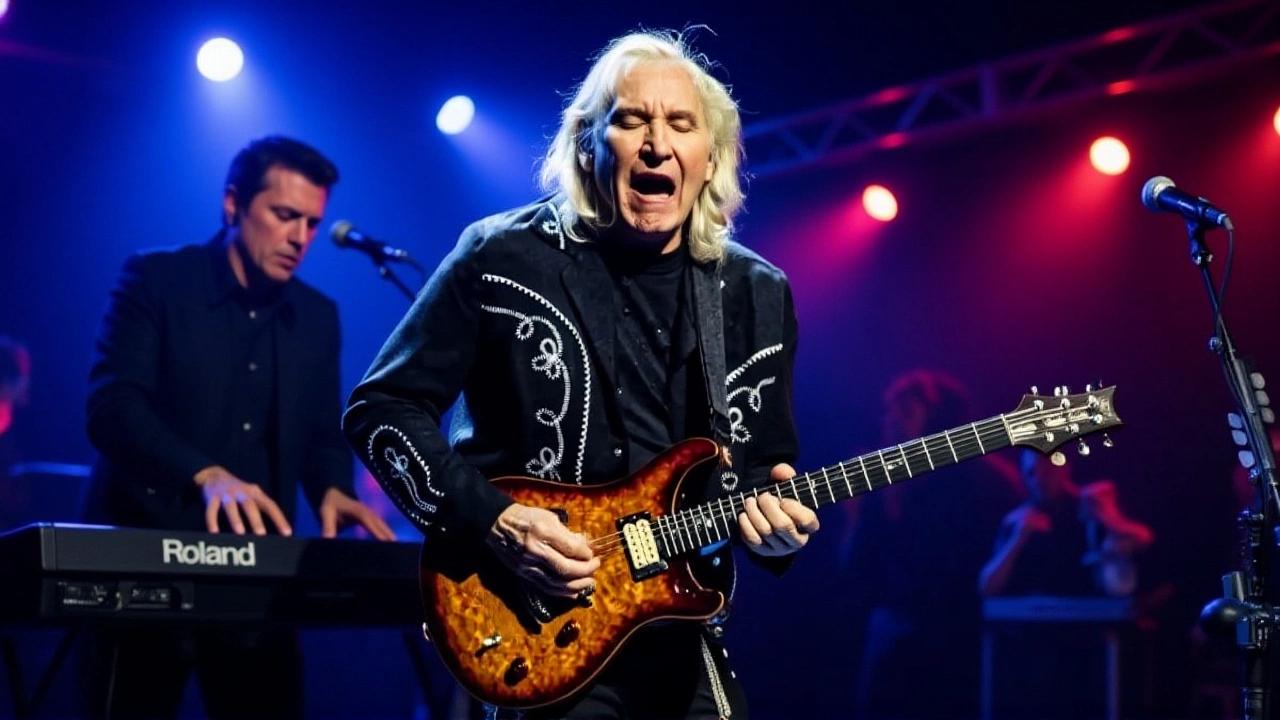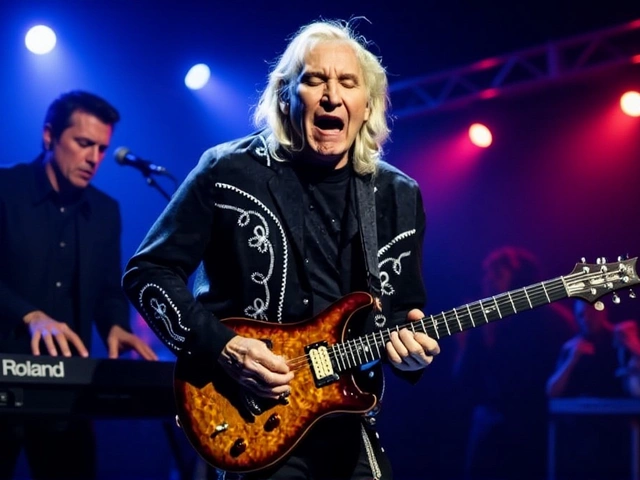Two very different Joe Walshs are making headlines in 2025—not for political battles or chart-topping hits, but for their staggering financial profiles. One is a rock legend whose guitar riffs shaped generations; the other, a corporate executive steering a Fortune 500 tech firm. Both share a name, but little else.
The Rockstar Fortune: Joseph Fidler Walsh of the Eagles
At 77, Joseph Fidler Walsh, the guitarist and vocalist behind some of the Eagles’ most iconic anthems, carries an estimated net worth between $75 million and $80 million. His wealth didn’t come from one hit—it came from decades of relentless touring, album sales, and shrewd real estate moves. His 2008 purchase of a sprawling 20-acre estate in the Beverly Hills Post Office district for $4.5 million still stands as a crown jewel. He later listed a nearby hillside property for $5.3 million after buying it in 2013 for $3.95 million. In 2023, he quietly snapped up a $2.345 million Sherman Oaks bungalow with a hidden garden and home theater—a quiet retreat from the spotlight.
His music deals were equally strategic. A 1971 contract with Asylum Records granted him a rare 9% royalty rate—far above industry norms at the time. Then came the 2007 Walmart-exclusive release of the Eagles’ Long Road Out of Eden, backed by a $40 million marketing campaign. That deal alone likely generated tens of millions in residual income.
Even in his 70s, Walsh remains active. His role as a mega-mentor on The Voice Season 28 isn’t just a nostalgia trip—it’s a steady paycheck and a chance to influence new talent. He also earns from merchandise, licensing, and occasional solo tours. His wife, Marjorie Bach, whom he married in 2008, has kept a low profile, but their three children, including musician and actress Lucy Walsh, are part of his extended legacy.
The Corporate Titan: Joe Walsh of Thryv Holdings
Meanwhile, in Dallas, another Joe Walsh—this one the Chairman and CEO of Thryv Holdings Inc—is building wealth in boardrooms, not recording studios. As of June 2025, his net worth hovers between $24.4 million and $28 million, primarily tied to his 2,211,249 shares of Thryv Holdings Inc (THRY) stock.
SEC filings reveal a pattern of calculated moves. Over the past five years, he’s executed 15 transactions: 14 buys, one sell. His most aggressive year was 2020, when he spent nearly $6 million to acquire 2.7 million shares. In 2024, he shifted strategy, selling 13,493 shares for $262,221—the largest cash-out of his career. His most recent trade? Buying 5,000 shares on May 7, 2025, for $67,000. February consistently emerges as his most active month, whether he’s buying or selling. It’s a man who reads the market like a setlist—knowing when to hold, when to fold.
Thryv, formerly known as DexYP, provides digital marketing tools for small businesses. Under Walsh’s leadership, the company has weathered economic turbulence by pivoting toward AI-driven customer acquisition tools. His stock ownership gives him significant influence—though his public statements remain rare. He doesn’t tweet. He doesn’t do podcasts. He lets the filings speak.

The Politician Who Lost It All
Then there’s the third Joe Walsh—the former Illinois congressman whose story is a cautionary tale. In 2010, he ran for Congress against Melissa Bean, spending $603,000 and ending up $362,000 in debt. By 2012, his campaign against Tammy Duckworth had ballooned to $7 million in spending—$6 million of it from outside Super PACs. Despite outspending Duckworth nearly two-to-one, he lost 55% to 45%. His net worth, once modestly positive as a venture capitalist at Ravenswood Advisors, turned negative: -$71,500 by 2012.
He was known for his fiery TV appearances and unwavering stance against tax increases on the wealthy. But voters didn’t reward his ideological purity with victory. His story stands in stark contrast to the other two Joe Walshes: one built wealth through creativity and patience, another through corporate strategy, and the third, through political ambition that outpaced public support.

Why This Matters
These three men illustrate how identity, industry, and timing shape financial destiny. The musician’s wealth is rooted in cultural impact—his royalties keep flowing even as streaming replaces CDs. The CEO’s wealth is tied to market performance and disciplined stock management. The politician’s downfall shows how debt can follow you even when you win the argument but lose the election.
For fans of classic rock, Joseph Fidler Walsh’s legacy is secure. For investors, the Thryv CEO’s moves are worth watching. And for anyone in public service? His story is a reminder: money doesn’t always follow passion—it follows strategy.
Frequently Asked Questions
How much is Joe Walsh from the Eagles worth in 2025?
Joseph Fidler Walsh, the Eagles guitarist, has an estimated net worth of $75–80 million as of 2025. His wealth comes from decades of music royalties, real estate investments—including a $4.5 million Beverly Hills estate—and recent appearances on The Voice Season 28. His 9% royalty rate from Asylum Records in 1971 and the $40 million Walmart campaign for Long Road Out of Eden were pivotal financial milestones.
Who is Joe Walsh of Thryv Holdings, and how did he build his wealth?
Joe Walsh, CEO of Thryv Holdings Inc., has a net worth of $24.4–28 million as of mid-2025, largely from owning 2.2 million shares of THRY stock. He’s made 15 stock transactions since 2020, with his largest purchase in 2020 ($6 million for 2.7M shares) and largest sale in 2024 ($262K from 13.5K shares). His disciplined trading pattern and leadership at the small-business tech firm have steadily increased his equity stake.
Did the Illinois politician Joe Walsh ever recover financially after his campaigns?
No, the former Illinois congressman Joe Walsh never recovered financially after his 2010 and 2012 campaigns. By 2012, his net worth had dipped to -$71,500, according to OpenSecrets. He spent $7 million in 2012 alone—$6 million from outside groups—and ended up $362,000 in debt after losing to Tammy Duckworth. He left office with no significant business ventures and no public indication of financial recovery.
What real estate does the musician Joe Walsh own?
The musician Joe Walsh owns multiple high-value properties in Los Angeles. His most notable holdings include a 20-acre Beverly Hills Post Office estate bought in 2008 for $4.5 million, a Sherman Oaks bungalow purchased in 2023 for $2.345 million with a hidden garden and home theater, and a Beverly Hills hillside property bought for $3.95 million in 2013 and later listed for $5.3 million. He sold his Studio City home in 2018 for $1.9 million.
How did Joe Walsh’s music deals contribute to his net worth?
His 1971 Asylum Records contract gave him a 9% royalty rate—unusually high for the era—which compounded over decades of album sales. The 2007 Walmart-exclusive release of the Eagles’ Long Road Out of Eden was backed by a $40 million marketing campaign, generating massive sales and ongoing royalties. He also earns from live performances, licensing for films and commercials, and merchandise tied to his solo career and Eagles catalog.
Is there any connection between the three Joe Walshes?
No, there is no known personal or professional connection between the musician, the CEO, and the former congressman. They are three distinct individuals who happen to share the same name. The musician is from Kansas, the CEO is based in Dallas, and the politician represented Illinois. Their careers, financial paths, and public profiles are entirely unrelated.

